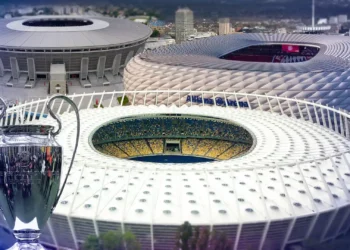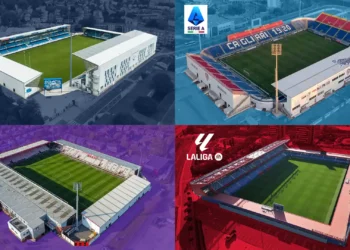UEFA, the governing body of European football, once used a prestigious “5-Star Stadium” rating to recognize the most elite venues that met their highest standards. Today, that classification has evolved into “UEFA Category 4 Stadiums,” a distinction reserved for the best football arenas in the world.
In this article, we take an in-depth look at some of the most prestigious stadiums that have either held the former 5-star status or currently qualify as UEFA Category 4 venues. These stadiums have hosted iconic Champions League finals, European Championships, and World Cup matches, making them the pinnacle of football excellence.

To earn UEFA’s highest classification, a stadium must meet strict criteria, including:
-A minimum seating capacity of 30,000 (with at least 22,500 seats covered).
-State-of-the-art facilities for players, officials, and media. High-quality pitch conditions and advanced drainage systems.
-Exceptional security measures and fan experience amenities.
-VIP hospitality areas and premium services.
-Cutting-edge floodlighting and broadcasting infrastructure
-Only the best of the best make the cut. Now, let’s explore the top stadiums that have achieved this honor.

1. Wembley Stadium (London, England)
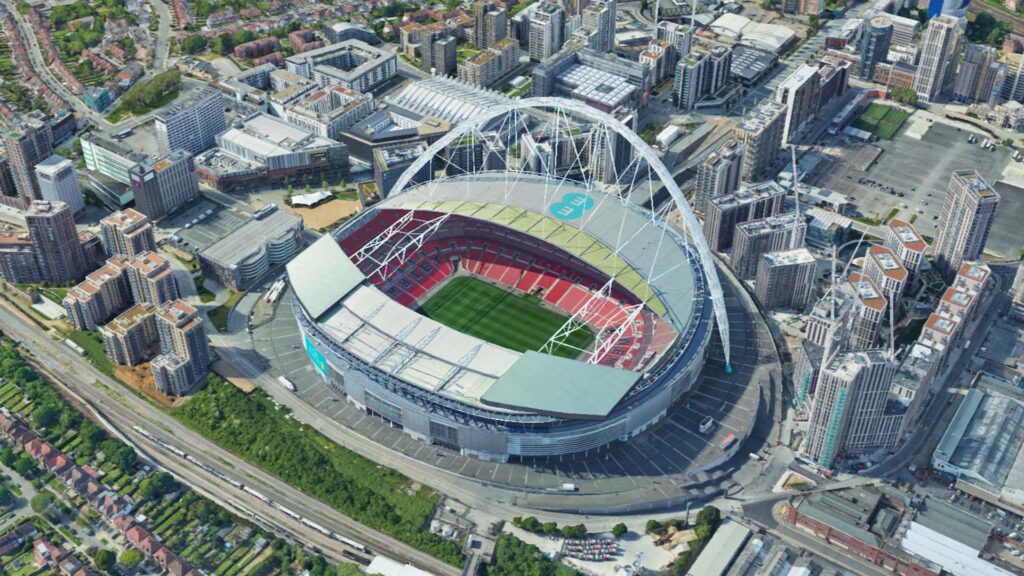
Arguably the most famous football stadium in the world, Wembley has hosted multiple Champions League finals, FA Cup finals, and England’s most historic matches. With a seating capacity of 90,000, it is the largest stadium in the UK.
2. Santiago Bernabéu (Madrid, Spain)
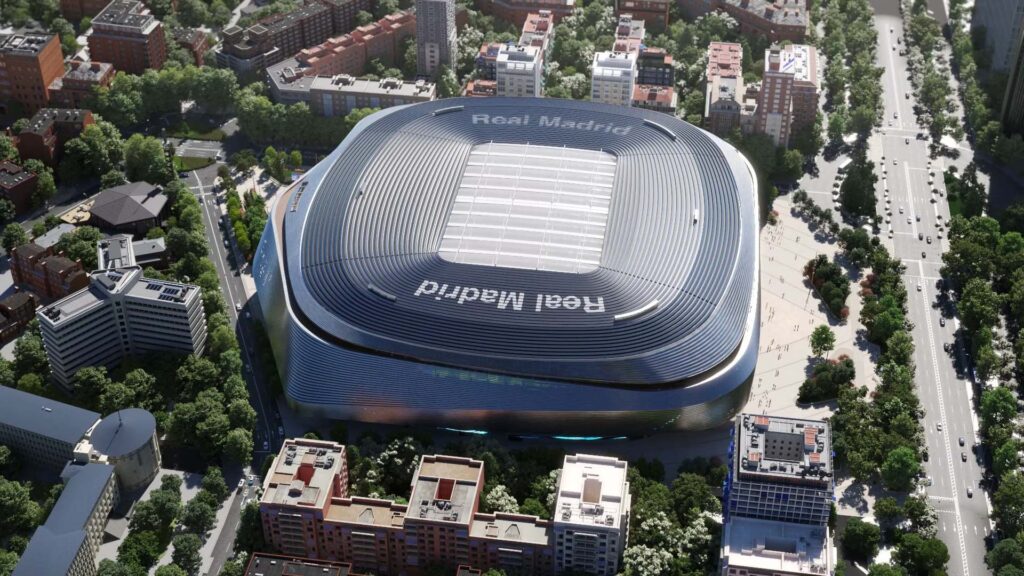
Home to Real Madrid, this legendary stadium is undergoing a futuristic renovation to maintain its place among the world’s elite. It has hosted multiple Champions League finals and will soon offer a retractable roof and cutting-edge fan experiences.
3. Allianz Arena (Munich, Germany)
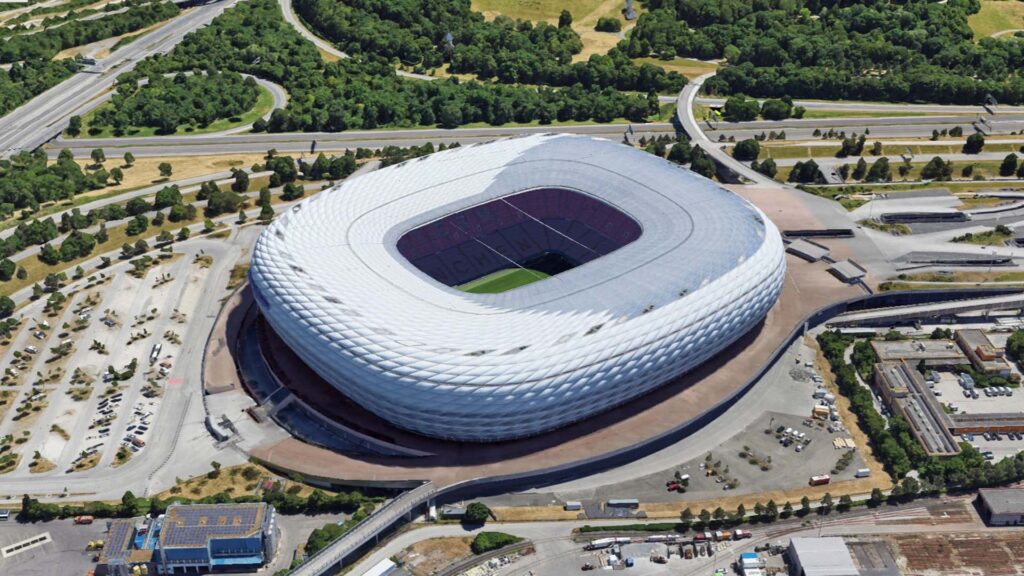
Known for its color-changing LED exterior, Bayern Munich’s Allianz Arena is one of the most visually stunning stadiums in the world. It was the venue for the 2012 Champions League final and is set to host key matches in Euro 2024.
4. Old Trafford (Manchester, England)
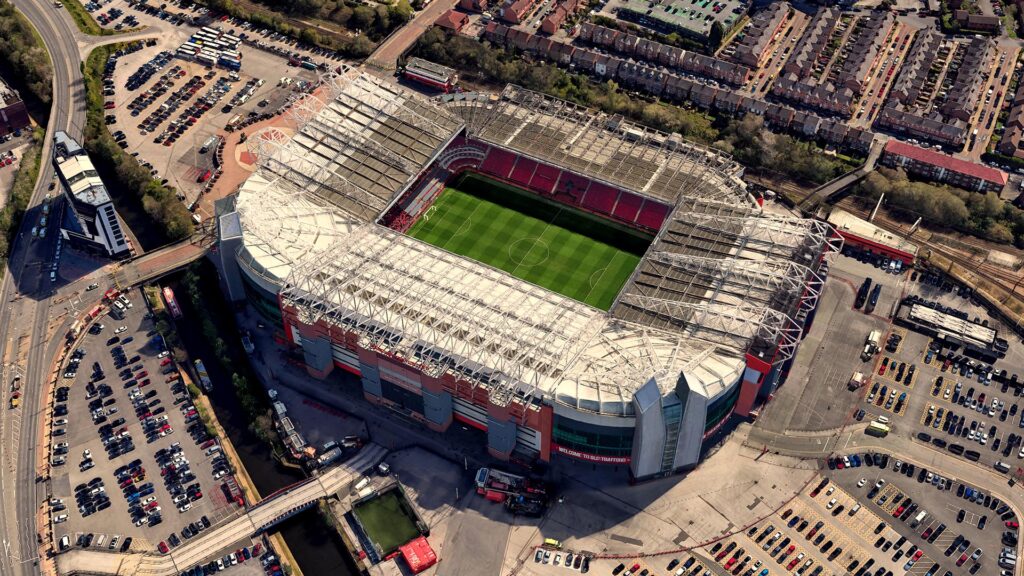
Nicknamed “The Theatre of Dreams,” Old Trafford is Manchester United’s fortress and one of the most iconic stadiums in Europe. It has hosted European finals and numerous England internationals.
5. San Siro (Milan, Italy)
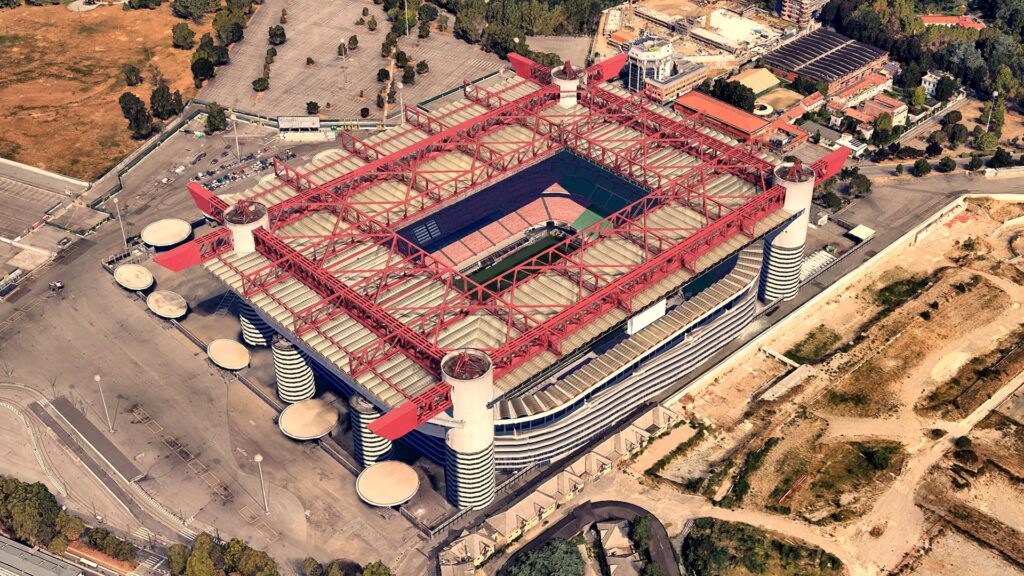
Shared by AC Milan and Inter Milan, the historic San Siro is a footballing temple. Despite plans for a new stadium, it remains one of the most respected venues in European football history.
6. Signal Iduna Park (Dortmund, Germany)
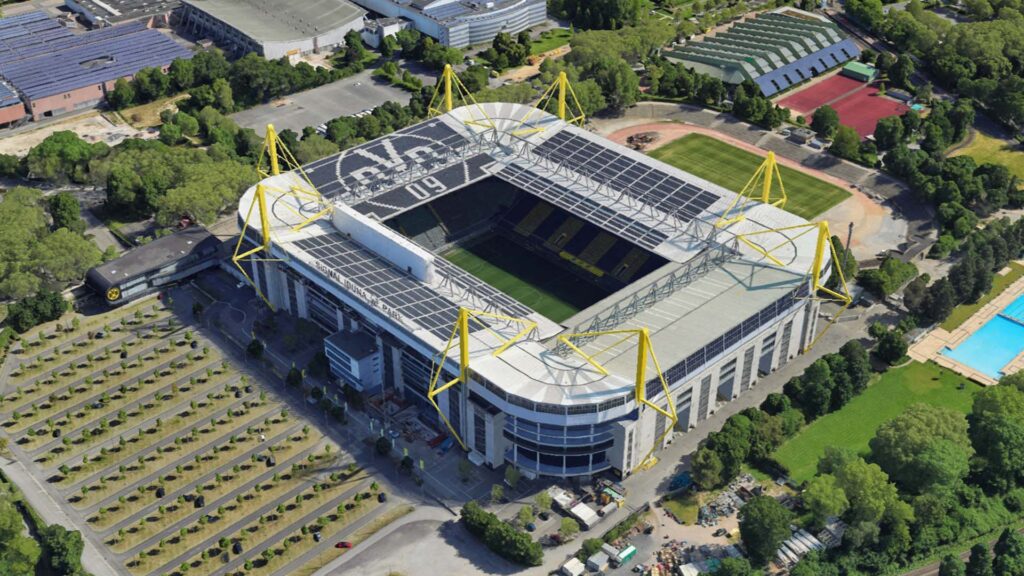
Renowned for its electric atmosphere, Borussia Dortmund’s home ground is famous for the “Yellow Wall,” one of the most intimidating stands in world football.
7. Stade de France (Paris, France)
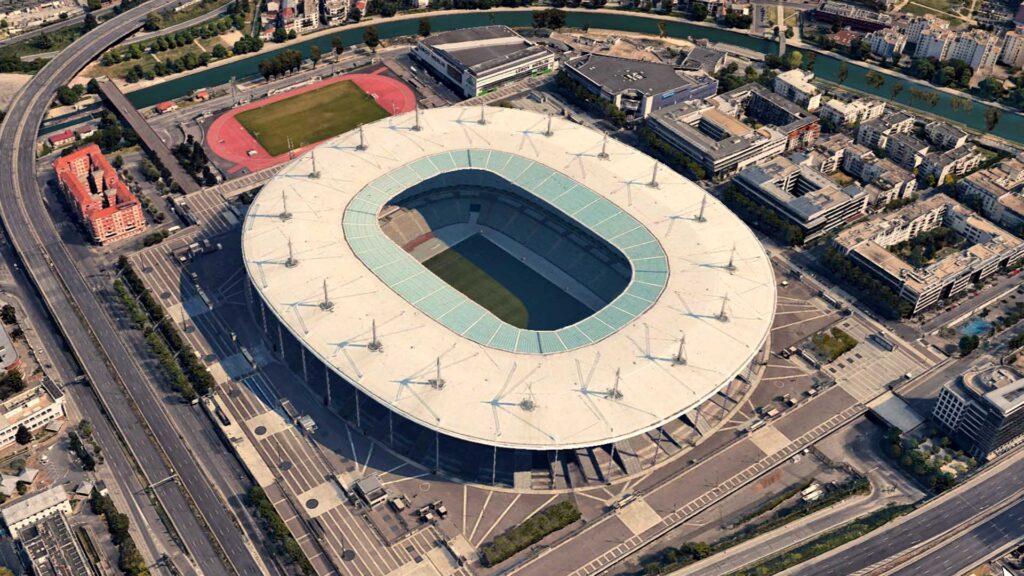
Built for the 1998 World Cup, this 80,000-seater has hosted Champions League finals and international tournaments, including Euro 2016.
8. Johan Cruyff Arena (Amsterdam, Netherlands)
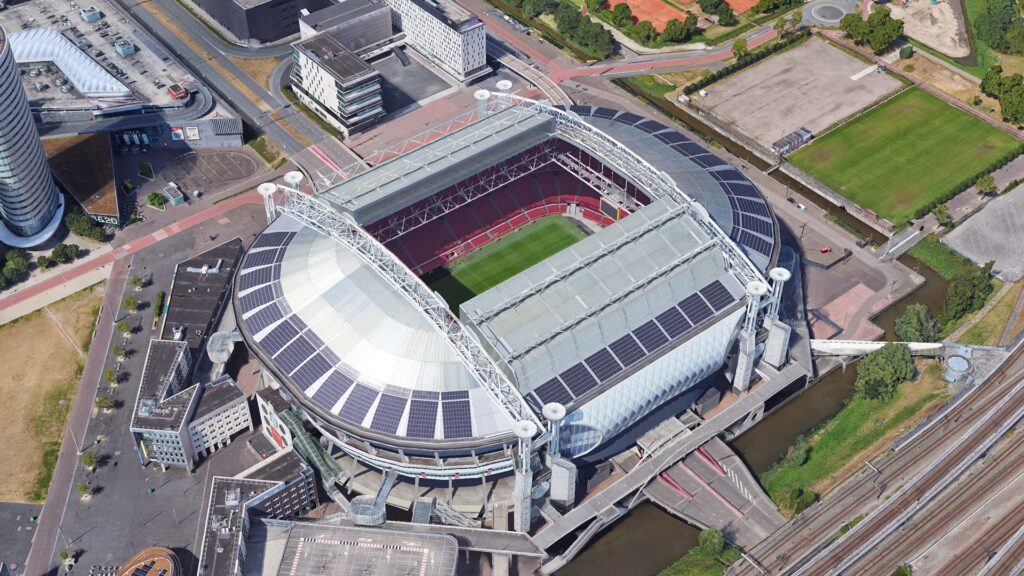
Home to Ajax, this stadium is named after the legendary Johan Cruyff and is a model for innovation in stadium architecture and sustainability.
9. Estádio da Luz (Lisbon, Portugal)
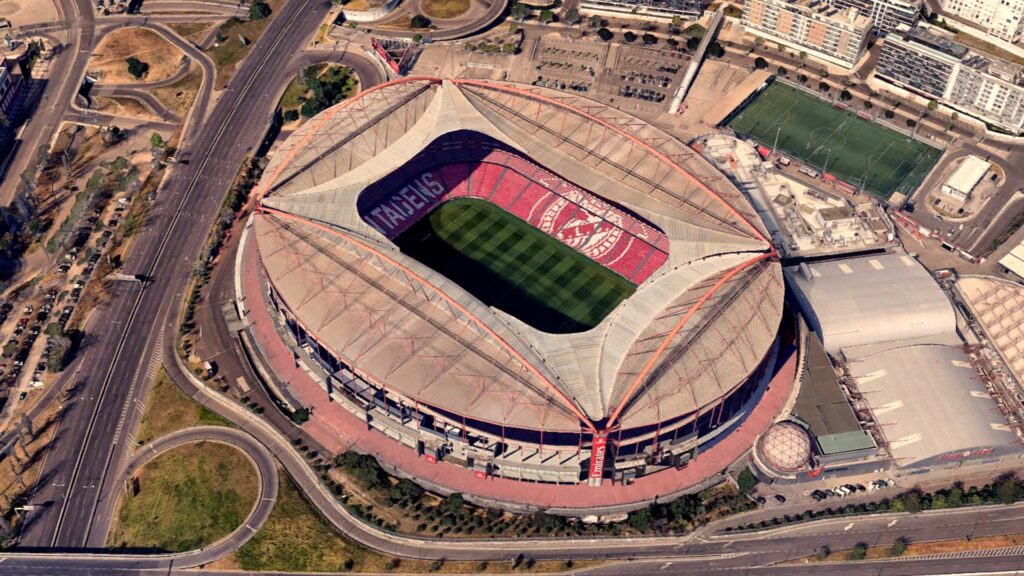
Benfica’s home stadium has hosted Champions League finals and is known for its passionate fanbase and breathtaking pre-match eagle flight tradition.
10. Tottenham Hotspur Stadium (London, England)
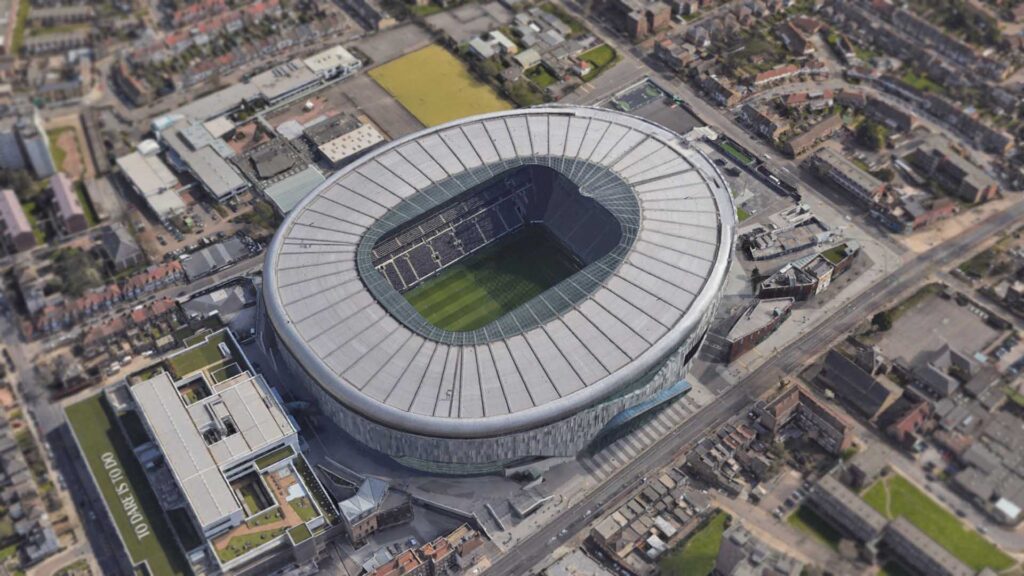
One of the most technologically advanced stadiums in the world, Tottenham’s new home boasts a retractable pitch and state-of-the-art facilities.
11. Olympiastadion (Berlin, Germany)
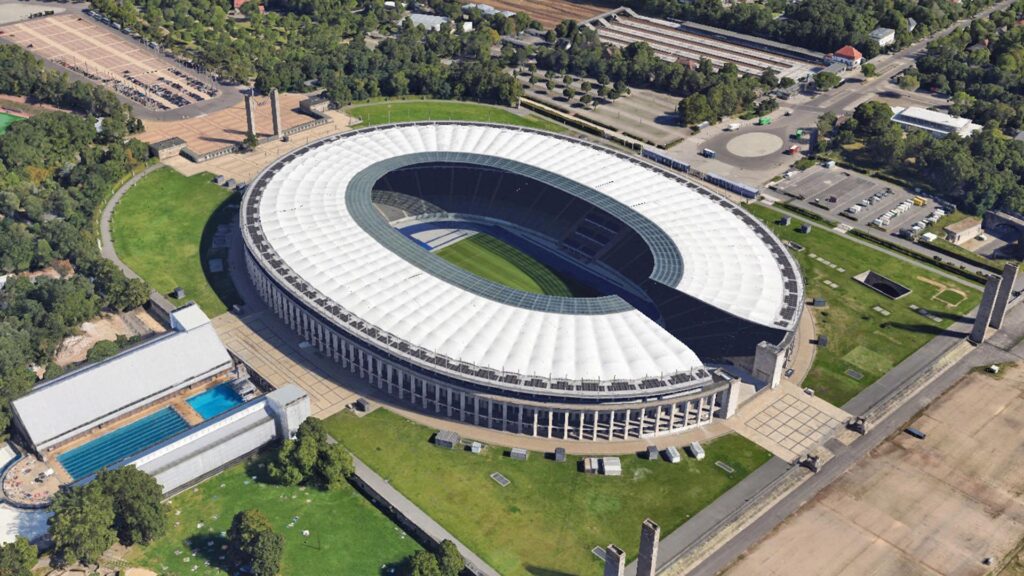
A stadium rich in history, the Olympiastadion hosted the 2006 World Cup final and remains a premier venue for international tournaments.
12. Atatürk Olympic Stadium (Istanbul, Turkey)
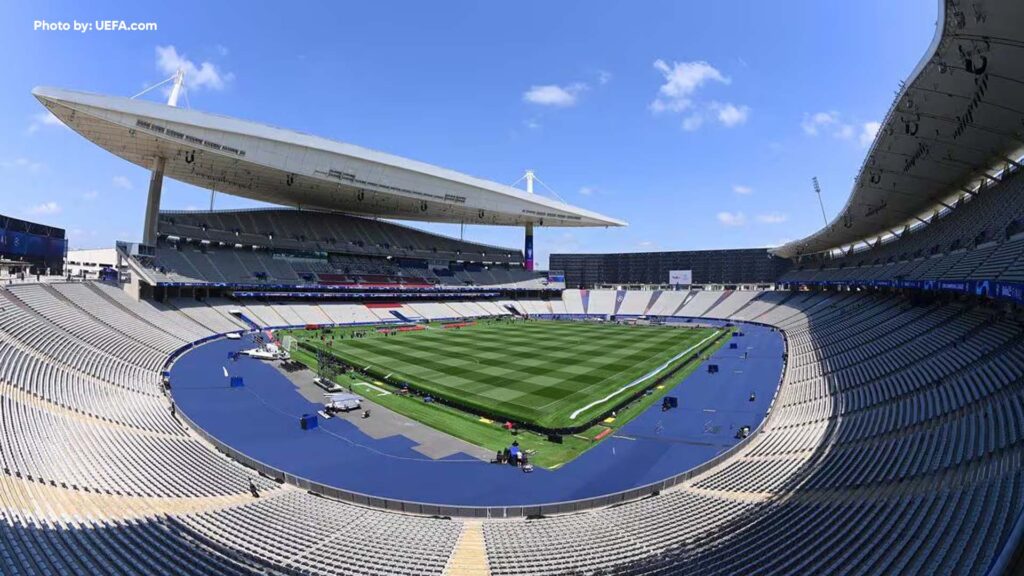
The site of Liverpool’s famous 2005 Champions League comeback, this stadium is set to host the 2023 Champions League final as well.
13. Krestovsky Stadium (Saint Petersburg, Russia)
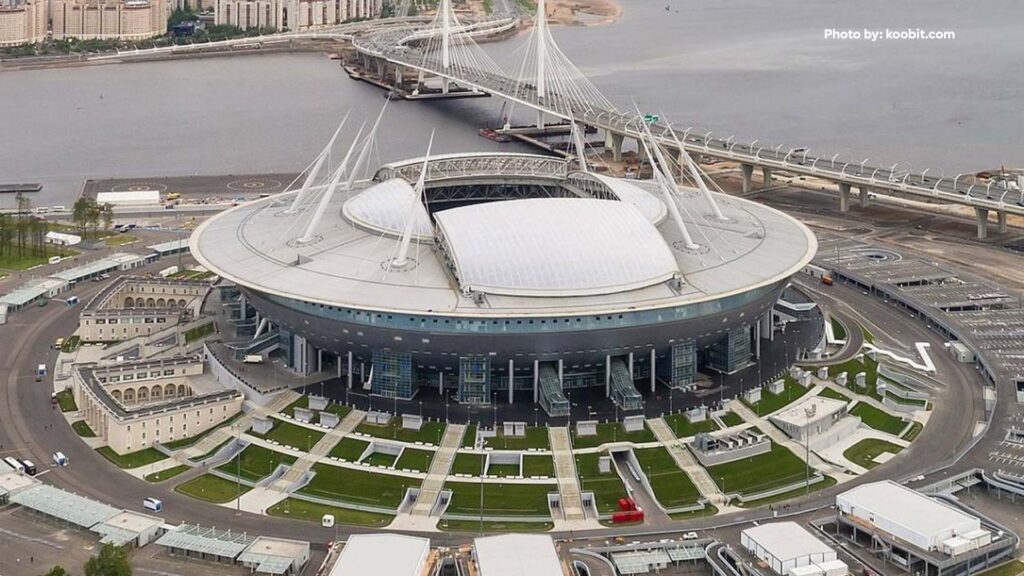
A futuristic stadium with a retractable roof, Krestovsky Stadium was a key venue for the 2018 World Cup.
14. Luzhniki Stadium (Moscow, Russia)
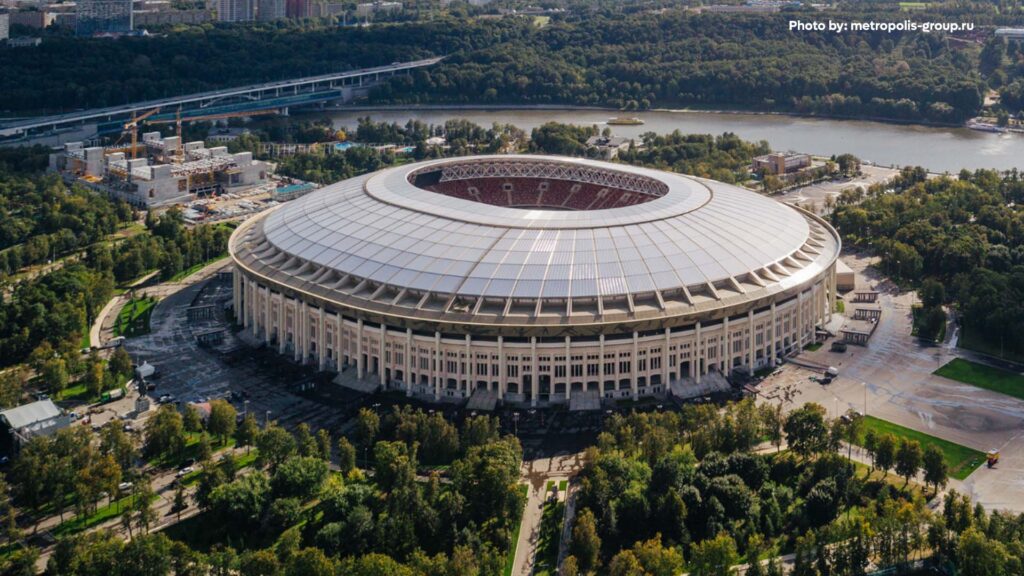
Russia’s largest stadium, Luzhniki, hosted the 2018 World Cup final and has been a historical landmark in football.
15. Puskás Aréna (Budapest, Hungary)
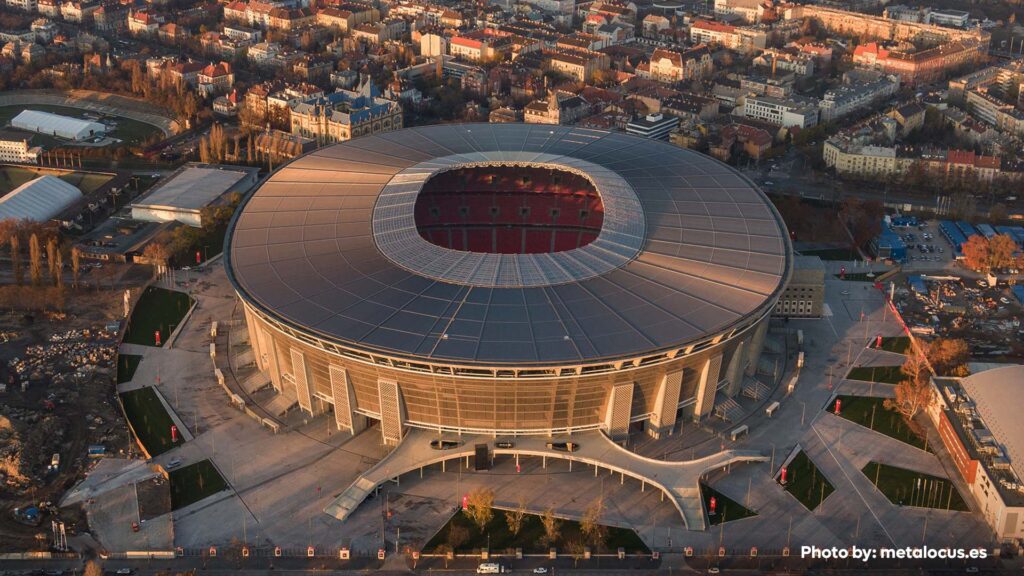
Named after the legendary Ferenc Puskás, this modern stadium has quickly become a major venue for UEFA competitions.
Why These Stadiums Matter
From historic moments to unforgettable finals, they represent the pinnacle of the sport’s beauty and passion. As UEFA continues to evolve stadium requirements, these venues remain at the forefront of innovation, ensuring fans around the world experience football at its finest.
For football enthusiasts, visiting any of these stadiums is a bucket-list experience. Whether it’s the electric atmosphere of Dortmund’s Yellow Wall, the iconic Wembley arch, or the legendary Bernabéu, these arenas will continue to host the biggest moments in football history for generations to come.


